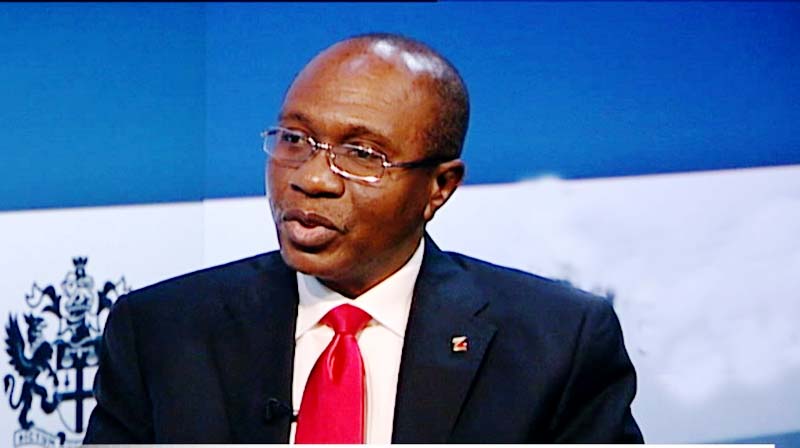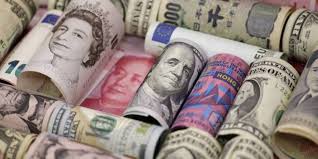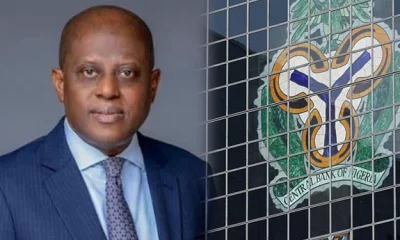Business
Charges: Banks to make N2.3bn monthly from current accounts
Published
10 years agoon
By
Olu Emmanuel
• Groups declare ‘no banking day’ over charges
• Over 160bn lost yearly to dubious charges
By ODUNEWU SEGUN
WITH N15 maintenance charge on current account, commercial banks in the country are expected to make N2.3 billion monthly from customers. The figure represents an average of N77 million daily from the over 23 million current accounts holders in the country, investigation has revealed.
Among the numerous charges introduced by the Central Bank of Nigeria in recent times include ATM withdrawals which now cost N65 on 3rd withdrawals, N1,000 for debit card issuance and renewals, N105 for every online transfer, plus another N105 as annual debit card maintenance and N50 stamp duty charge on every credit of over N1000.
According to Joseph Aniede, National Coordinator of an NGO, Union of Banks and others financial institutions Customers of Nigeria, Nigerian bank customers lose over N160billion every year through dubious charges that are not known to law and through these charges they lose more money to the banks more than they lose to armed robbers.
He said the stealing continues unabated because Nigerians who uses banks to do their businesses doesn’t have a faint idea of the bank rules and regulations. The forensic expert said the ignorance of Nigerians on banking policies and regulations were easy tools in the hands of the banks to defraud their naive customers.
ALSO SEE: CBN puts in measures to reduce stress on naira
As many Nigerians complain about these charges, especially the hidden charges that are not published but defended by banks as maintenance charges, consumers advocacy groups, Consumer Foundation of Nigeria and the Coalition of Nigerian Consumer Protection Association have asked Nigerians to avoid all forms of banking services tomorrow, March, 1st.
According to the President of CAFON, Sola Solako, for many years now, customers of banking services have endured excessive charges, unexplainable fees and unfair contracts that only protect the banks but do not protect the consumers.
He faulted the recently introduced maintenance fees for current accounts and ATM cards as well as the N50 Stamp Duty, maintaining that the flat levy of N50 for every transaction from N1, 000 was not equitable and amounted to taking from the poor to enrich the wealthy.
“A student who receives an allowance of N2, 000 pays the same amount as a rich man who receives a deposit of N10m! So, the student is technically paying more taxes than the rich man. That is inequitable and unfair,” Banwo added.
A customer with one of the commercial banks, Mosun Akinola complained that she received several SMS alerts on one withdrawal and was subsequently charged for all the messages, although they all referred to just one transaction. He however did not make an official complaint because he felt the amount that was deducted from his account was not worth the stress.
Also speaking on the charges, a civil servant with the Lagos State Ministry of Transport, Ayobami Banwo, said the charges are confusing. “I didn’t notice the deductions until a few weeks ago when I went to make a deposit into my account. I saw my account balance and began to make enquiries. They said the deductions started this year and I was not alone.
“So many other customers that day in the banking hall were furious. Despite the directive from the CBN about not making deductions for the use of ATMs, I am being charged for email alerts, account balance, SMS, ATM usage and another N1, 000 for maintenance.
ALSO SEE: Standard Bank Group canvasses diversification of economy
Defending the charges, Executive Director of Finance, Standard Chartered Bank, Yemi Owolabi explained that the banks only charge the customers maintenance fees and other fees recognised by the laws. He said the maintenance fees take care of the cost of maintaining the account, infrastructures “At the end of the day the banks will have to recover the costs. The people that invest in them will also expect returns on their investment. They talk about VAT, it does not come to banks, it is a tax and it goes to the government.”
Also speaking on the charges, CBN director, Banking Supervision, Dipo Fatokun said “the services are not provided for free. Service providers in the banking industry who are making it possible for you to sit here and transfer money from here to any part of the world also need to be paid.”
Stating that the cost of banking services in Nigeria for electronic transactions is one of the lowest in the world, Fatokun noted that “it is on the decline and will continue to come down because it depends on volume.”
Since assuming office, Emefiele, the Central Bank of Nigeria (CBN) governor has been making moves to regulate fees being charged by banks in the country. The regulatory body issued several circulars giving instructions on fees Nigerian banks can charge their customers.
You may like


CBN announces economic resurgence, declares $6.83bn balance of payments surplus


External reserves under Nigerian Presidents 1979 – 2024


Interpol places 3 Nigerians on Red Alert for stealing $6.2m from CBN


Breaking: Banks to pay diaspora remittances in Naira


HURIWA demands DSS, EFCC to investigate CBN over Naira scarcity


I’m humbled to be appointed CBN Gov – Cardoso
Trending

 Business1 week ago
Business1 week agoNaira mixed across markets as official window dips, parallel market strengthens

 Football1 week ago
Football1 week agoUCL Playoff: Gordon scores four as Newcastle thrash Qarabağ 6-1

 Entertainment6 days ago
Entertainment6 days agoSinger Simi faces backlash after TikToker admits to false rape allegation

 Latest1 week ago
Latest1 week agoLegal constraints, not connectivity, delay electronic results — Igini

 Entertainment3 days ago
Entertainment3 days agoSimi addresses resurfaced 2012 tweets amid online backlash

 Business1 week ago
Business1 week agoThree Crowns Milk launches nationwide Ramadan campaign to promote heart-healthy nourishment

 Latest1 week ago
Latest1 week agoTinubu defends electoral reform, downplays mandatory real-time upload

 Comments and Issues6 days ago
Comments and Issues6 days agoNigeria’s Declining Oil Output and Soaring Foreign Portfolio Investment Inflow

